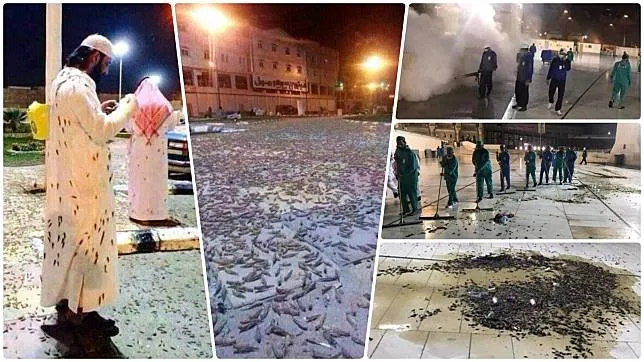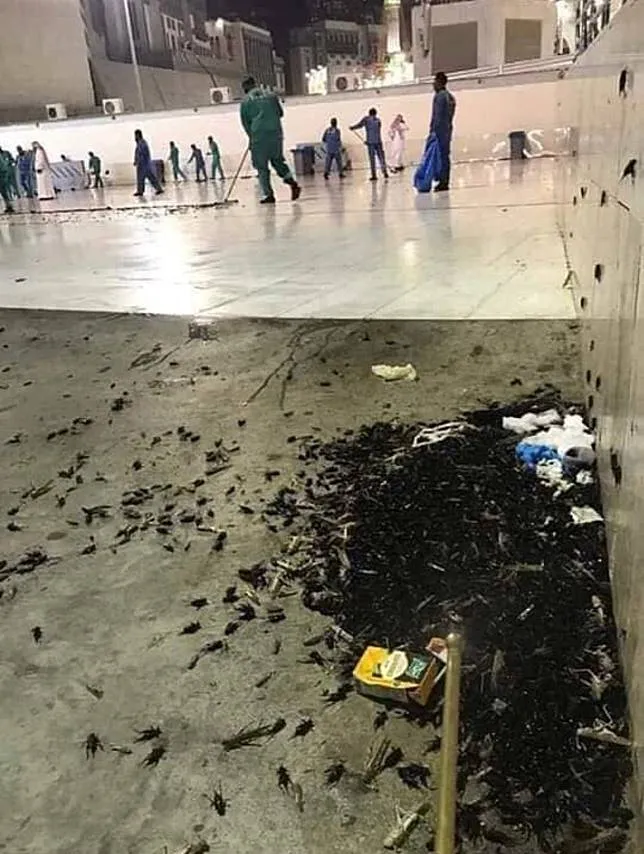
Visitors to the Grand Mosque in the holy city of Makkah, Saudi Arabia, were shocked by the "invasion" of thousands of crickets and grasshoppers. And the presence of these insects has occurred throughout this week. Even videos and photos of thousands of crickets and grasshoppers are widely shared on social media.
According to a congregation, crickets filled the Grand Mosque, even near the Ka'bah.
"On Saturday night I prayed at the Holy Mosque and insects everywhere, the mosque was like inviting them, not only in the yard, even around the Ka'bah," said a resident, Abdulwhab Soror, 64.
And I have lived in Mecca for life and have never seen anything like this, "he continued.

This incident was justified by the City Government of Makkah. In his statement, the Makkah city government called the insects "black grasshoppers" and said the crickets and grasshoppers were in the migration phase.
Hamed bin Mohamed Metwally, professor of physiology at Umm Al-Qura University, also explained to the Palestinian media, Sawa News, and that the existence of crickets and grasshoppers can indeed increase in cold times and will disappear in four to six weeks.
Indeed, the city of Makkah is in a "cold" phase. and Based on the weather data from the Accu Weather website, the weather in Mecca since the beginning of 2019 is now in the range of 31 degrees Celsius during the day and around 22 degrees Celsius at night.

Usually this holy city of Muslims has very high temperatures in summer, often reaching more than 40 degrees Celsius in the afternoon. While from November to January, there is usually a light rain in Makkah.
And Meanwhile, Jacky Judas, advisor on environmental issues at WWF and the Emirates Nature conservation agency said he was surprised at this phenomenon. According to his confession, this was the first time he saw a phenomenon like this.
And also "This is the first time I've seen this species in large numbers," he told The National.
He argued that these insects might have originated from an insect farm in the Arabian Peninsula which was deliberately bred for bird food. Judas suspected that there were some insects that had escaped and spread to Mecca.